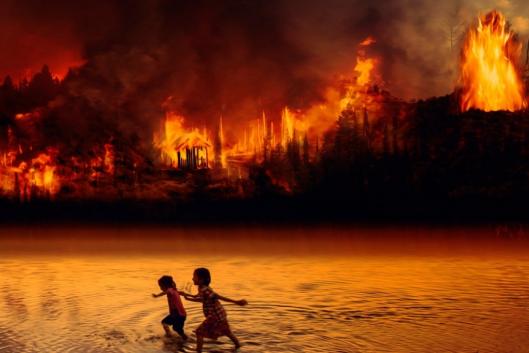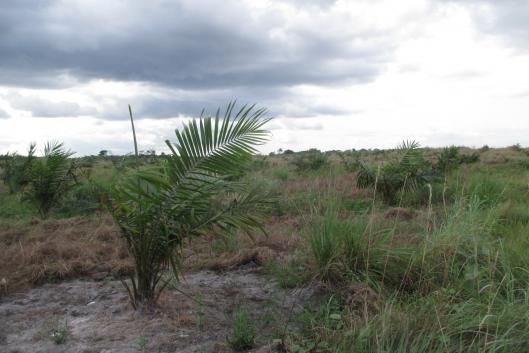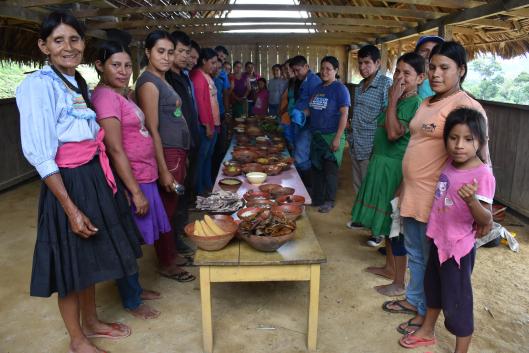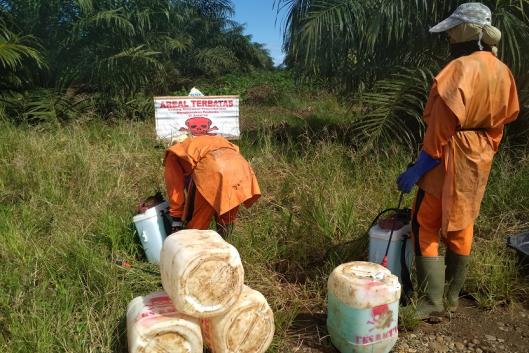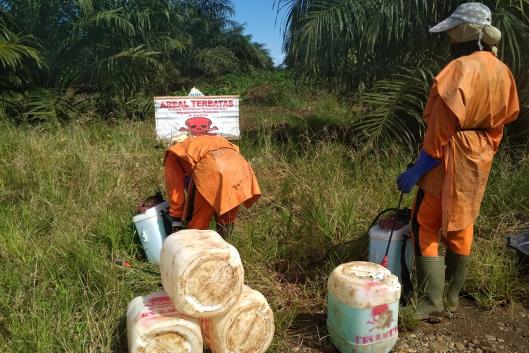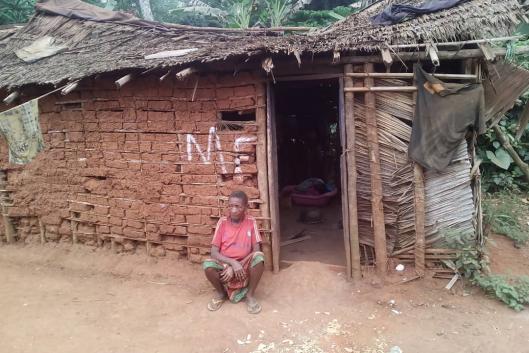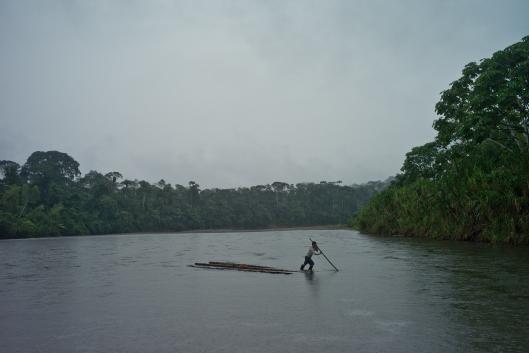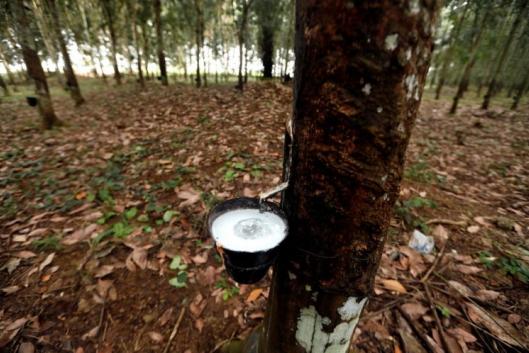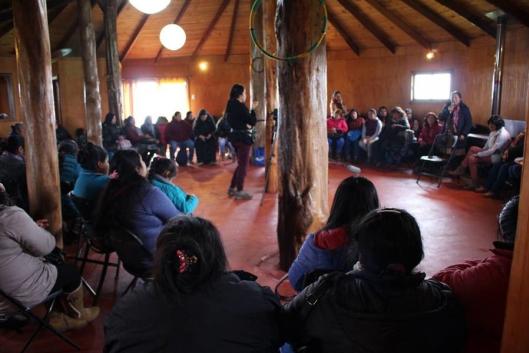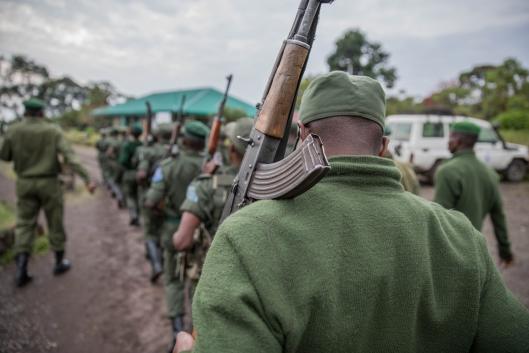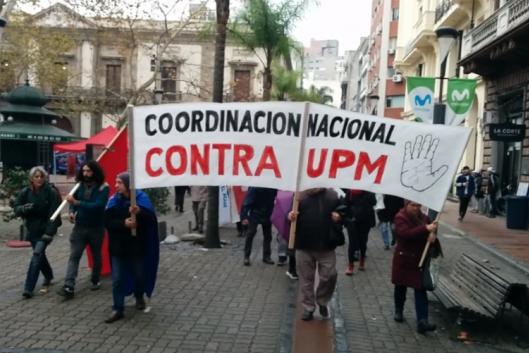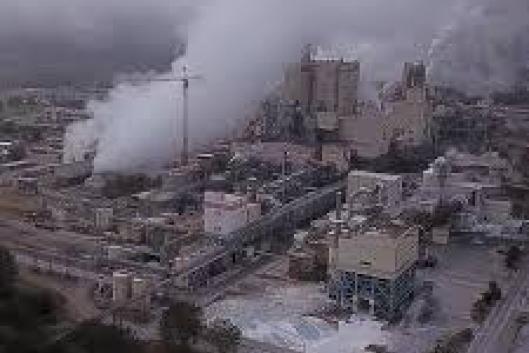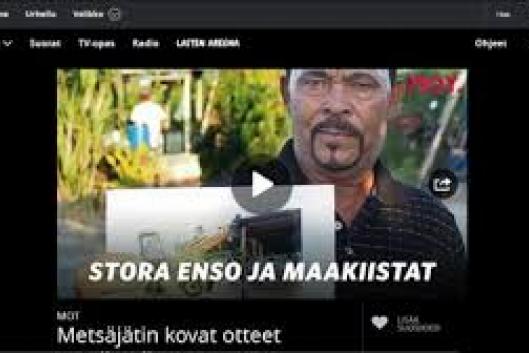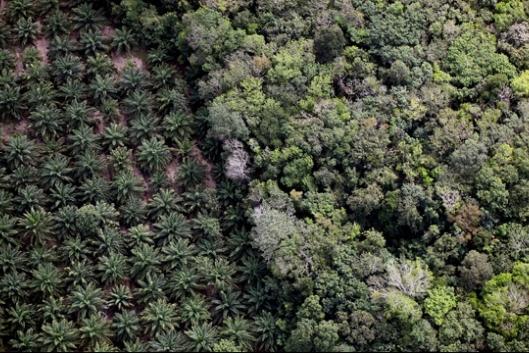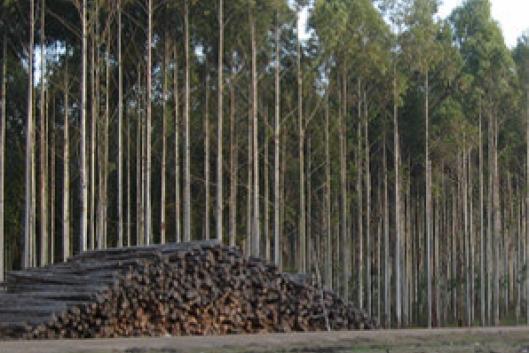“Shock” is a common reaction when a crisis emerges… or when it comes to light. However, it also provides a convenient smoke screen for governments, financial institutions and companies behind which they can hide their own role in and responsibility for the current crises in the forests.
Bulletin 245 - September 2019
Communities Facing Deforestation, False Solutions and Corporate Interests
The articles in this Bulletin are written by the following organizations and individuals: Muyissi environnement, Gabon; Zidane, Sawit watch, Indonesia; NGONO OTONGO Martin Romuald, Center for the Environment and Development (CED - Centre pour l’Environnement et le Développement), Cameroon; Luis Romero Rengifo, Waman Wasi Center, Lamas, Peru; Marquardt, Kristina, Pain Adam and Bartholdson Örjan, Swedish University of Agricultural Sciences; Verónica González Correa, Latin American Observatory on Environmental Conflicts (OLCA – Observatorio Latinoamericano de conflictos ambientales); and members of the WRM international secretariat.
WRM Bulletin
245
September 2019
OUR VIEWPOINT
COMMUNITIES FACING DEFORESTATION, FALSE SOLUTIONS AND CORPORATE INTERESTS
-
30 September 2019The Singapore-based OLAM company has secured access to 500 thousand hectares of land in Gabon to set up large-scale oil palm plantations, a country with 85% of forest coverage. How can OLAM then claim to follow a “zero deforestation” commitment?
-
30 September 2019The government claims that small-scale agriculture is responsible for deforestation. But this claim ignores government policies that drive land-use changes and destructive markets as well as the exclusion of indigenous peoples through the creation of reserves.
-
30 September 2019Exploitative working conditions in the oil palm plantations’ industry in Indonesia are persistent and the main victims are mostly women. Although this situation is often overlooked, the production process of the world’s largest producer of palm oil is strongly influenced by its existence.
-
30 September 2019(English, Español, Português, Français)
-
30 September 2019Indigenous peoples in Cameroon are not only seeing their lands threatened due to strong pressure from corporate and state investors, but they also face a discriminatory justice system that blames and criminalizes them.
-
30 September 2019REDD+ has shown to be a big failure for the climate, the forests and forest peoples, but many international agencies and governments continue to support it. This article takes a look at its inability to halt deforestation and the fundamental flaws of its main initiatives.
-
30 September 2019The industrial production of natural rubber has always been synonymous with destruction and exploitation. About 70% is used to manufacture tires. As the use of cars, trucks and airplanes increases, the use of rubber will also increase. And this does not come without controversy.
-
30 September 2019The Network of Women’s Organizations of Tirúa, in south central Chile, is deploying strategies for life to prevail in this region. This territory has been threatened by the massive invasion of tree plantations, which state policies continue to promote.
PEOPLES IN ACTION
-
30 September 2019The Centre for accompanying Pygmy Autochthones peoples and Vulnerable Minorities (CAMV, for its French acronym) alerts on the disturbing and disastrous situation at the Kahuzi Biega National Park, DRC. There already have been violent incidents in April and July 2019, where people have been seriously injured and killed. And on August 1, 2019, a Pygmy and an eco-guard were killed as a result of another altercation in a territory occupied by the Pygmies inside the park. Other clashes between eco-guards and pygmies are reported daily.
-
30 September 2019At the end of July 2019, UPM confirmed that it will install a second pulp mill in Uruguay. This megaproject will produce up to 2.33 million tons of cellulose per year, this means significant environmental, social, and cultural damage. This project does not have social license. Several social organizations, local citizens’ groups, and stakeholders have expressed their concerns about the ways in which the megaproject will affect their lives and their concerns have not been properly addressed by the public consultation process. The latest version of the contract allows UPM to withdraw by giving only a one-year notice, without providing justification and without material consequences.
RECOMMENDED
-
30 September 2019The campaign, “Territorial Voices on the MAPA Project: Testimonies about the mega-expansion of Celulosa Arauco,” seeks to shine a light on testimonies about the impacts of this project that aims to triple the production of the Celuloca Arauco plant in Chile. The Ojo de Treile Collective has produced a series of micro audiovisual capsules to take a stand against the most ambitious plantation industry project in the history of the country, which is threatening to further interfere with forests and ancestral territories.
-
30 September 2019TV Yle, Finland’s national public broadcasting channel, has produced a documentary about the participation of Stora Enso, a Swedish-Finnish pulp giant that is part of Veracel Celulose. Veracel Celulose is a company in Brazil accused of land grabbing, bribery and environmental and labor crimes. It is worrisome that the police have arrested people interviewed in the documentary, such as farmer Geraldo Pereira. Pereira claims to have owned part of the land Veracel is defending since the 1970s—a fact confirmed in a local court hearing in Eunapolis that heard from witnesses who told their stories and confirmed their claims to ownership.
-
30 September 2019RSPO is the most widely used voluntary certification system for palm oil companies and it hold its 3rd African Sustainable Palm Oil Conference in Accra, Ghana on August 2019. But Friends of the Earth Africa groups exposed it as a greenwashing label. Cases of environmental degradation and rights violations remain visible in many of the plantations that have the label. They also blame the activities of oil palm plantation companies for biodiversity loss, increased poverty, human rights violations and the climate disaster in Africa, among others.
-
30 September 2019This report -by Anne Petermann and Orin Langelle, Global Justice Ecology Project- examines events and research publicized between 23 June and 4 July 2019 that discuss the mass-use of trees to enable the unsustainable lifestyles of the world’s top 1% in the face of looming ecological catastrophe: from trees genetically engineered to feed the “green” manufacture of energy, plastics and chemicals; the planting of trillions of trees to reduce global atmospheric carbon levels; and “reforms” to the economic system to allow future profit-making under the guise of biodiversity protection.
